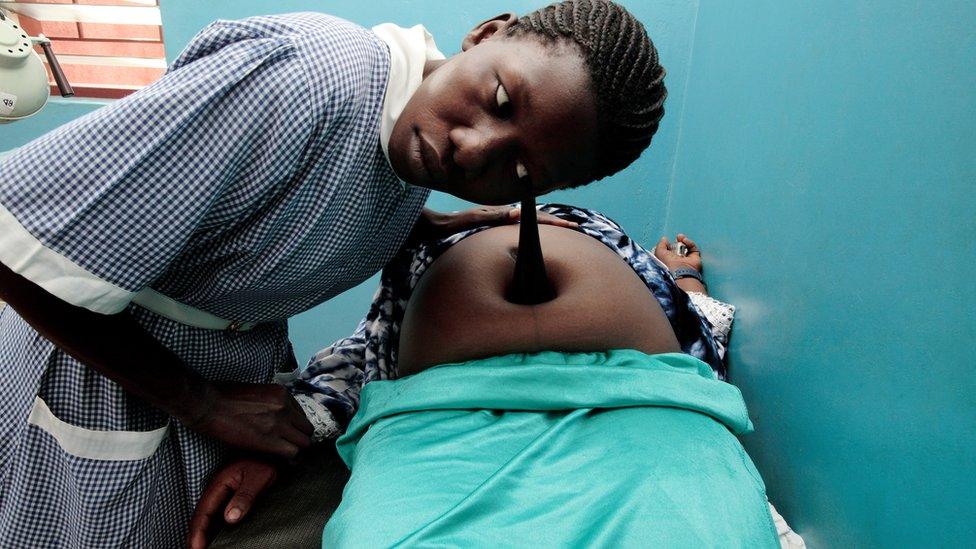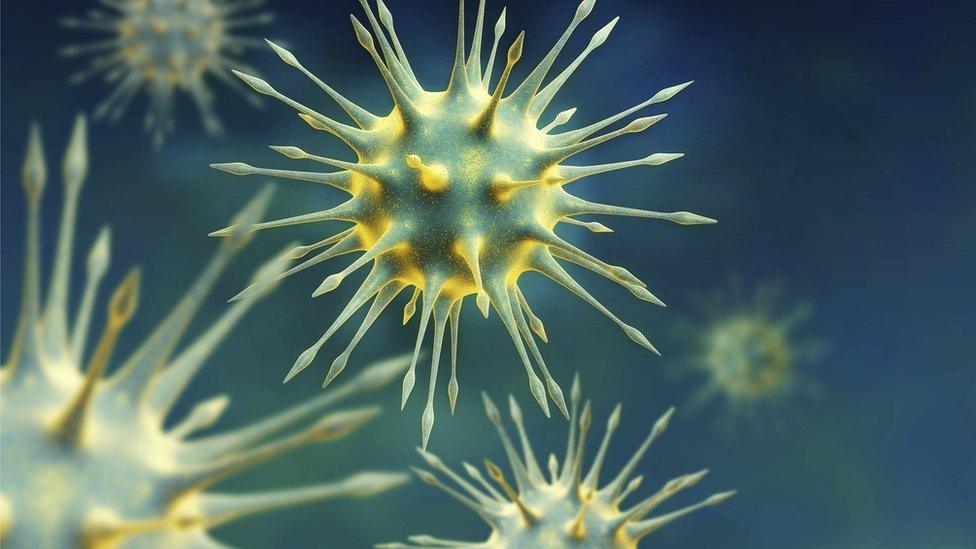HIV drugs give couples 'ray of hope'
- Published

The most effective form of protection against contracting HIV is to use a condom while having sex. But what if you want children? A project in Kenya is helping couples there have a family without risking their health.
John and his wife Josephine live a few hours north of Nairobi. Josephine is HIV positive, John is negative.
He says such situations can be difficult. "I've known couples who have separated", he says.
There are 260,000 couples in Kenya where one partner is positive and the other negative. Known as serodiscordant couples, they account for 44% of new HIV infections in the country.
The drive to have children is still very strong - in one recent study involving serodiscordant couples 16% of the women became pregnant.
Now a new way of using anti-HIV drugs called PrEP - normally given to people who are HIV positive - could potentially mean couples could try and conceive risk-free.
Dr Nelly Mugo from the Kenya Medical Research Institute in Nairobi and a team from Washington University have been running a trial.
"The Partners PrEP study took over 4,700 couples, one of whom had HIV, and one who didn't. The person who wasn't infected took PrEP over the course of 36 months.
"We found that having the drug in your system reduced the rate of transmission by over 90%.
"If the positive partner was also taking antiretroviral drugs, the risk of transmission would reduce to zero or close to zero"
In some communities social pressure to have children can be huge, with families of childless couples often struggling to understand why they haven't had children.
'Nowhere to hide'
In a recent study couples described feeling helpless and vulnerable to HIV while trying to conceive.
Uninfected partners were relieved when they remained uninfected after unprotected sex, which for some reinforced a belief in divine protection.
Dr Mugo says: "Common motivations for child-bearing included fulfilling the couples' preferred family size, desire for biological children, maintaining partnership stability and, often most importantly, external pressure from society."

HIV is incurable because, once in your body, it hides in inaccessible places, creating reservoirs, which means it can never be flushed out.
The theory behind PrEP is that taking the antiretroviral drugs before becoming infected means they are already in the body.
But researchers have shown that if a non-infected person already has the PrEP drugs in their system when the virus enters their body it gets killed.
This means it doesn't have a chance to hide in reservoirs, and so its harder for that person to become infected.
"PrEP is the best thing that can happen for these couples" says Dr Mugo, because it could solve what she calls the "discordance dilemma".
"When you find out your partner is HIV positive it can lead to conflicting emotions," she adds. "But relationships and feelings and love are stronger than the virus.
"With many couples they want to stay together, but are unable to have normalised sexual relationships. PrEP has the potential to solve this problem."
The trial was a success. As of September 2015, the World Health Organization (WHO) recommends that people at substantial risk of HIV infection should be offered PrEP as an additional prevention choice, as part of comprehensive prevention.
PrEP has also recently been approved by the Kenyan and South African drugs regulators - so the future is looking a little brighter.